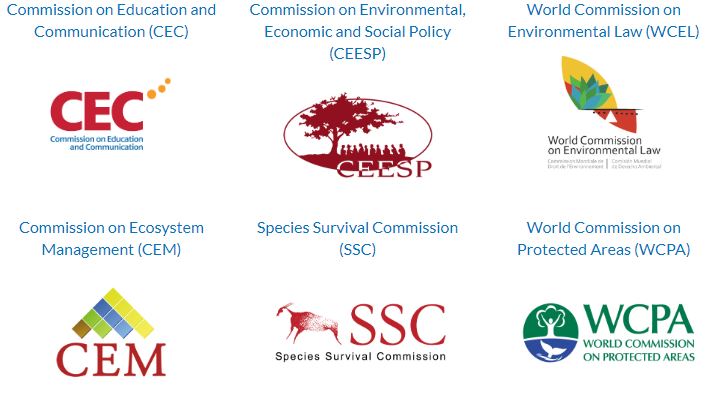IUCN’s Commission membership reaches 15,000
IUCN is proud to announce that it has reached 15,000 Commission members.

Photo: IUCN
With their technical expertise and policy advice on conservation matters, these volunteer scientists and specialists provide an invaluable contribution to the work of IUCN, its Members and partners, helping to drive conservation and sustainable development action.
“IUCN Commissions are essential to IUCN’s Mission. They comprise an extraordinary force where volunteer experts contribute to planetary wellbeing with their knowledge, individual and collective effort and commitment,” said IUCN Acting Director General, Dr Grethel Aguilar. “This achievement is testament to the ever increasing importance of their growing work and influence.”
The work of IUCN’s six Commissions covers a wide range of disciplines: education and communication, environmental, economic and social policy, ecosystem management, species survival, environmental law and protected areas.
The Commission on Education and Communication (CEC) is organised into three main areas of work, each aiming to raise awareness of the importance of nature and its conservation through experience, effective communication and youth involvement. Taking inspiration from the post-2020 Biodiversity Framework, the CEC’s strategic work plan focusses on key events and opportunities leading to the IUCN World Conservation Congress 2020, the CBD COP 15, and beyond.
The fundamental socio-economic and cultural concerns of human communities, such as livelihoods, human rights and responsibilities, human development and the fair and effective governance of natural resources, are some of the main aspects of the work of the Commission on Environmental, Economic and Social Policy (CEESP). The Commission’s natural and social scientists and practitioners provide IUCN with critical resources to meet the present-day challenges for nature and natural resource management and the goal of shaping a sustainable future.
The Commission on Ecosystem Management (CEM) promotes ecosystem-based approaches for the management of landscapes and seascapes, provides guidance and support for ecosystem-based management and promotes resilient socio-ecological systems to address global challenges. Working with the IUCN Ecosystem Management Programme, CEM’s 13 Thematic Groups and 14 Specialist Groups deal with the complexity of ecosystems, their components and interrelations, with people and cultures making different and often-conflicting uses of the ecosystems. The Species Survival Commission (SSC) works closely with the IUCN Global Species Programme and other partners to drive the fight to save species for people and nature. It has a major role in providing information to IUCN on the inherent value of species within biodiversity conservation that in turn feeds into the IUCN Red List of Threatened Species. SSC membership is organised into Specialist Groups, Task forces and Committees who provide scientific advice to conservation organisations, governments and other IUCN Members.
Through their projects and expertise, the network of environmental law and policy specialists of the World Commission on Environmental Law (WCEL) serve as the principal source of legal technical advice on all aspects of environmental law to IUCN and its partners. The Commission functions as an integral part of the IUCN Environmental Law Programme (ELP), collaborating closely with the Environmental Law Centre (ELC) based in Bonn.
In collaboration with the IUCN Protected Areas Programme, the World Commission on Protected Areas (WCPA) works to develop policy, advice and guidance on issues relating to protected areas. Global experts work together to find solutions for priorities, including global protected area standards and best practice guidelines.
More information on the work of the Commissions is available on the Commission websites.
To apply for Commission membership please use the IUCN Commission System.
For information on IUCN Members and membership, please visit the IUCN Member pages.



